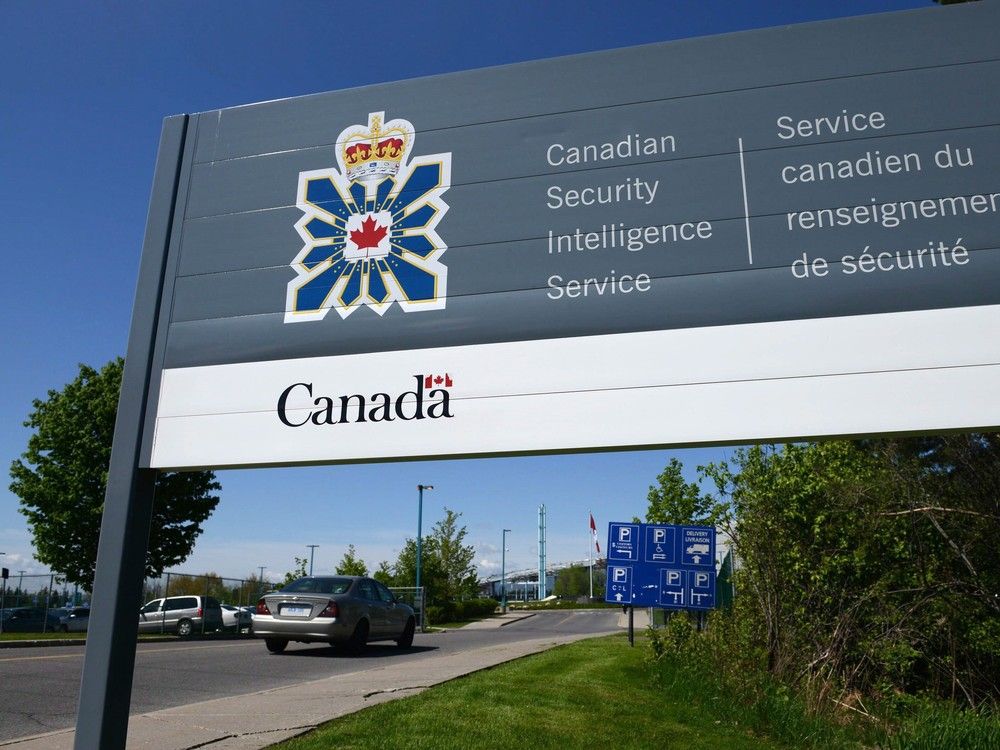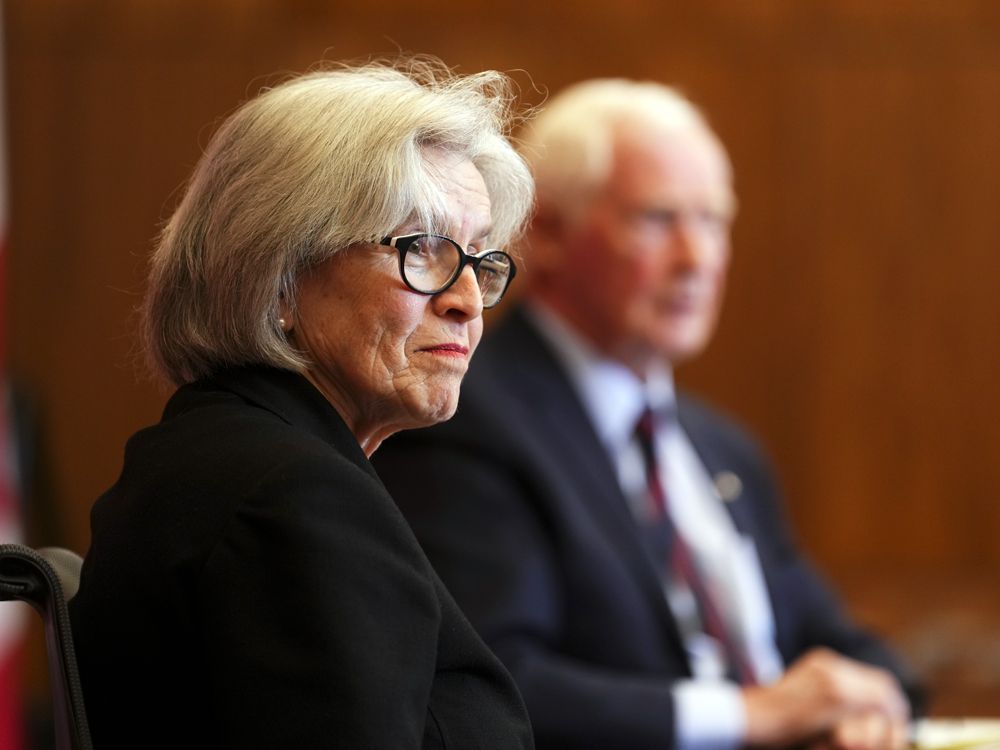- Reaction score
- 6,851
- Points
- 1,360
Interesting read....

 ottawacitizen.com
ottawacitizen.com
I spent more than 30 years with Canada’s two intelligence services, the Communications Security Establishment (CSE) and the Canadian Security Intelligence Service (CSIS). I worked in collection, cryptanalysis, translation, analysis and distribution over those years at various times. I know how intelligence is produced and how it is marketed, and a bit on how it can help decision-makers be better informed. In short, I know that intelligence has a purpose and makes a difference.
You wouldn’t know that from former governor general David Johnston’s report on Chinese interference in our democratic process. While I imagine not many were surprised at how little he criticized the government of Justin Trudeau, Canadians should be told that his scathing words on our intelligence agencies were inaccurate, unfair and, frankly, insulting.
Johnston says he met with the heads of CSE and CSIS. He thus should have been well-versed on how and why these two organizations do what they do. In that, he is one fortunate Canadian, as he had access to information few would ever get. And yet, based on what I read in his 59-page report, he either didn’t listen or he failed to understand what he was being told.
Johnston suggests — no, he boldly states — that our spies are getting the sharing of intelligence all wrong. He says that the distribution of intelligence is broken and puts the blame squarely on the backs of the agencies that produce it (and not on those who receive it as customers). Furthermore, he notes that intelligence is “piecemeal” and hence of little value as it rarely provides the “whole picture.” In this, he seems to follow in the footsteps of other self-styled “national security experts” who have belittled this source of information. Lastly, he accused the person who leaked CSIS reports to Canadian media on China’s election interference of having “malicious” intent.
Raw data is collected from a variety of sources (human, intercept, imagery, allies, etc.), processed, analyzed, corroborated across multiple sources wherever possible, summarized, put into a nice, small package (on average two to three pages maximum) and delivered to officials with the requisite security clearance. This distribution is often carried out by dedicated CSE/CSIS staff who are posted within the very buildings where clients such as senior government officials work, to insure personalized service and to be on hand to answer any questions, or pass feedback or requests for more intelligence along to headquarters. The product is often left with clients; they have the liberty to share it with others who have equal security clearances. (Whether or not they do is not a CSE/CSIS issue.)
If an official in a given department decides that intelligence is not worth passing on (or that it inconveniently goes against entrenched policy) to those higher up the chain — including the prime minister — how can the fault for a lack of awareness be placed at the feet of the creators of the product? The intelligence bodies have done their job.
In addition, no one in intelligence is so arrogant as to believe that our product is the be-all and end-all of information that on its own can decide matters (although I have seen where it actually did that). We realize that there are other considerations but hope that the intelligence gathered is at least part of the calculation. It seems clear to me that the intel on China was almost completely ignored — for decades — by a number of federal governments.
On the alleged reasons for the leak (note: I do not support leaks, on principle), I wonder how Johnston knows the individual responsible had evil intent. It strikes me that this unknown person may be a very frustrated public servant who is sick and tired of having decades of solid information ignored and took it upon him/herself to let Canadians know what this government (and previous ones) was (not) doing. How is that “malice”?
Those of us who worked, or are still toiling, in intelligence go to the office every day with one purpose only: to get the best data possible from sensitive sources and share that with senior officials to keep them informed. We do not expect everything we do to make a crucial difference but we do expect our customers to recognize our expertise and our commitment to Canada. To have our reputations sullied by people who have no background in the business is not fair.
We await David Johnston’s apology.
Phil Gurski is president and CEO of Borealis Threat and Risk Consulting.

Gurski: David Johnston owes Canada's spies an apology
The special rapporteur's scathing words on our intelligence agencies were unfair and, frankly, insulting. We await an apology.
I spent more than 30 years with Canada’s two intelligence services, the Communications Security Establishment (CSE) and the Canadian Security Intelligence Service (CSIS). I worked in collection, cryptanalysis, translation, analysis and distribution over those years at various times. I know how intelligence is produced and how it is marketed, and a bit on how it can help decision-makers be better informed. In short, I know that intelligence has a purpose and makes a difference.
You wouldn’t know that from former governor general David Johnston’s report on Chinese interference in our democratic process. While I imagine not many were surprised at how little he criticized the government of Justin Trudeau, Canadians should be told that his scathing words on our intelligence agencies were inaccurate, unfair and, frankly, insulting.
Johnston says he met with the heads of CSE and CSIS. He thus should have been well-versed on how and why these two organizations do what they do. In that, he is one fortunate Canadian, as he had access to information few would ever get. And yet, based on what I read in his 59-page report, he either didn’t listen or he failed to understand what he was being told.
Johnston suggests — no, he boldly states — that our spies are getting the sharing of intelligence all wrong. He says that the distribution of intelligence is broken and puts the blame squarely on the backs of the agencies that produce it (and not on those who receive it as customers). Furthermore, he notes that intelligence is “piecemeal” and hence of little value as it rarely provides the “whole picture.” In this, he seems to follow in the footsteps of other self-styled “national security experts” who have belittled this source of information. Lastly, he accused the person who leaked CSIS reports to Canadian media on China’s election interference of having “malicious” intent.
Raw data is collected from a variety of sources (human, intercept, imagery, allies, etc.), processed, analyzed, corroborated across multiple sources wherever possible, summarized, put into a nice, small package (on average two to three pages maximum) and delivered to officials with the requisite security clearance. This distribution is often carried out by dedicated CSE/CSIS staff who are posted within the very buildings where clients such as senior government officials work, to insure personalized service and to be on hand to answer any questions, or pass feedback or requests for more intelligence along to headquarters. The product is often left with clients; they have the liberty to share it with others who have equal security clearances. (Whether or not they do is not a CSE/CSIS issue.)
If an official in a given department decides that intelligence is not worth passing on (or that it inconveniently goes against entrenched policy) to those higher up the chain — including the prime minister — how can the fault for a lack of awareness be placed at the feet of the creators of the product? The intelligence bodies have done their job.
In addition, no one in intelligence is so arrogant as to believe that our product is the be-all and end-all of information that on its own can decide matters (although I have seen where it actually did that). We realize that there are other considerations but hope that the intelligence gathered is at least part of the calculation. It seems clear to me that the intel on China was almost completely ignored — for decades — by a number of federal governments.
On the alleged reasons for the leak (note: I do not support leaks, on principle), I wonder how Johnston knows the individual responsible had evil intent. It strikes me that this unknown person may be a very frustrated public servant who is sick and tired of having decades of solid information ignored and took it upon him/herself to let Canadians know what this government (and previous ones) was (not) doing. How is that “malice”?
Those of us who worked, or are still toiling, in intelligence go to the office every day with one purpose only: to get the best data possible from sensitive sources and share that with senior officials to keep them informed. We do not expect everything we do to make a crucial difference but we do expect our customers to recognize our expertise and our commitment to Canada. To have our reputations sullied by people who have no background in the business is not fair.
We await David Johnston’s apology.
Phil Gurski is president and CEO of Borealis Threat and Risk Consulting.




/cloudfront-us-east-1.images.arcpublishing.com/tgam/FIZFGBP3MVIF5D2EQZ4RWHSXUU.JPG)
/cloudfront-us-east-1.images.arcpublishing.com/tgam/46KF54H7XNN4VD3NAAGBE2TBYA.JPG)
